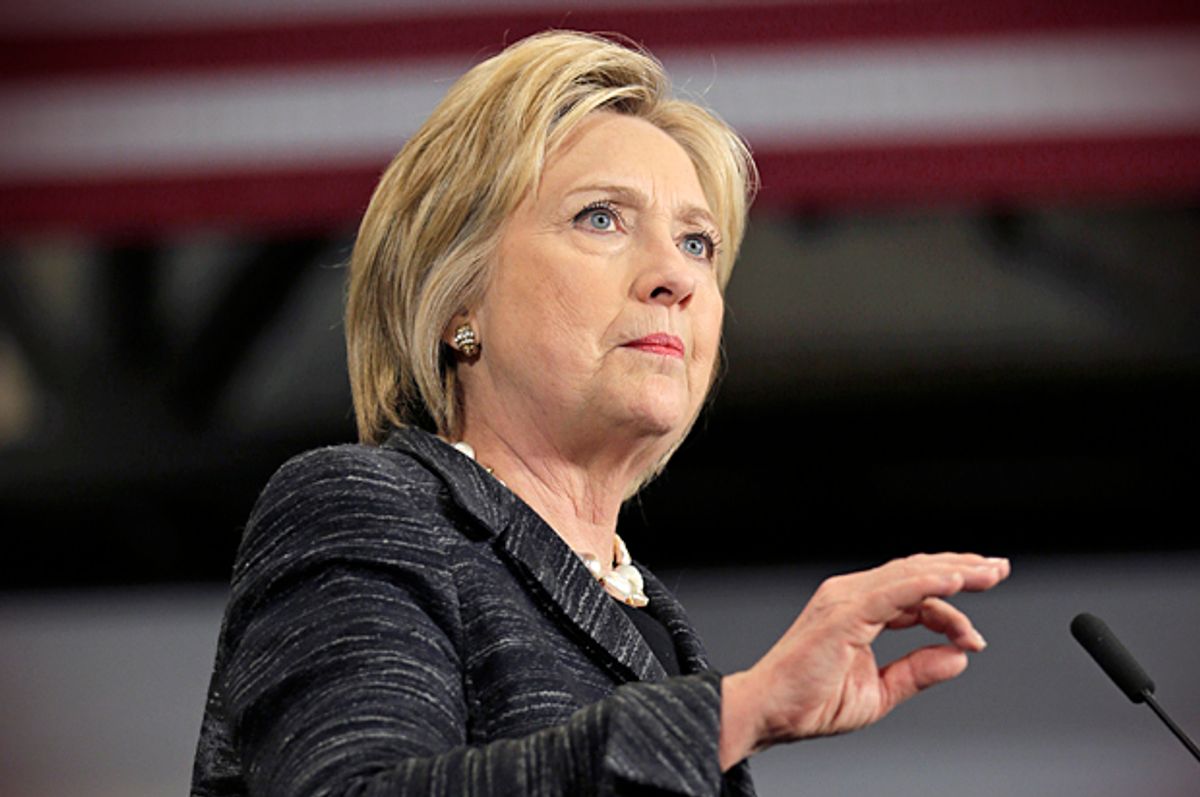"The candidate in the race most like George W. Bush and Dick Cheney from a foreign policy perspective is in fact Hillary Clinton, not the Republican nominee," explained GOP strategist Steve Schmidt in an interview this week on MSNBC.
"One thing we know as we get ready for a general election contest is that Donald Trump will be running to the left as we understand it against Hillary Clinton on national security issues," he added.
Schmidt is a longtime Republican operative who formerly served as the spokesman for the National Republican Congressional Committee, a deputy assistant to President George W. Bush and a senior campaign strategist for John McCain's 2008 presidential campaign. He is now a political analyst for MSNBC.
In the segment, Schmidt argued that Clinton is going to flex her extremely hawkish foreign policy stances to woo leading Republican figures.
"You're going to see a concerted and organized effort by the Hillary Clinton campaign to go after senior members of the Republican foreign policy establishment," he said.
"Big names," Schmidt stressed, citing figures such as former Bush-era Secretary of State Colin Powell, former CIA Director David Petraeus, and Bush senior's National Security Adviser Brent Scowcroft.
"Men and women who served in senior positions, in national security positions, in Republican administrations — the Clinton campaign's going to go after them. They're going to go after them forcefully," the former GOP strategist continued.
The interview can be watched below courtesy of RealClearPolitics.
The New York Times, which endorsed Clinton for president, echoed these observations in April, noting Hillary's extreme belligerence “will likely set her apart from the Republican candidate she meets in the general election.”
Trump, now the presumed GOP nominee, has not "demonstrated anywhere near the appetite for military engagement abroad that Clinton has," the Times wrote, adding “Hillary Clinton is the last true hawk left in the race.”
On MSNBC, Schmidt argued that Clinton is going to rapidly start pivoting her attention away from her opponent Bernie Sanders and toward Republicans, in hopes of winning their votes for the national election.
Clinton has a 10 percent lead in pledged delegates, with 1,700, or 55 percent of the total, to Sanders' 1,410, or 45 percent. It would be mathematically impossible for Sanders to win with just pledged delegates, given the remaining states, so he is going to have to appeal to superdelegates, unelected party elites who have overwhelmingly backed Hillary.
With Sanders waging an almost impossibly difficult uphill battle, "the Clinton campaign is likely to be opportunistic at this moment of actual melt inside the Republican party," Schmidt said.
Clinton will likely walk back her past critiques of Republicans, he added, and moderate her tone even more aggressively, inviting GOP voters who oppose Trump to instead vote for her.
"What happens if Hillary does make that move and wins the support of the Republican foreign policy establishment?" host Chris Matthews asked. He added that "everybody knows" that Clinton is "more hawkish," noting she is closely allied with hyper-militaristic leaders like accused war criminal and Nixon-era Secretary of State Henry Kissinger and Bush-era Defense Secretary Robert Gates.
"Isn't that going to send a signal to the Bernie Sanders people, against the Iraq War, against Hillary Clinton supporting that authorization of that war, isn't that going to cause a schism in the Democratic party?" Matthews asked.
"It will cause a schism to some degree in the Democratic party," Schmidt replied.
He added that Republican officials are already talking among themselves about throwing their weight behind Clinton in this election in order to save their party.
"There are real honest-to-goodness conversations taking place in Washington, D.C. that say, look, it's better to lose this election, for Hillary Clinton to be the president of the United States, to defend the institution of the Republican party, which is bigger than losing a single election," Schmidt explained.

Shares